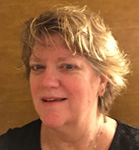7 Surprising Ways U.S. Physicians Are Approaching Biosimilars

By Dr. Diane Hayes, president & co-founder, InCrowd
Biosimilars are a hot topic today. While advocates view them as a way to lower drug costs, others in the industry are concerned about replacing a biologics prescription with a biosimilar that is only “similar.” Most reports on prescriber sentiment to date have tallied perceptions of physicians in aggregate. These tallies have not necessarily focused solely on physicians who, because they are currently prescribing biologics, would be most likely to prescribe biosimilars. However, new data from doctors in five clinical specialties where biologics are commonly prescribed suggest that physicians are beginning to understand the value of biosimilars.
According to a microsyndicated survey compiled by InCrowd, a real-time market intelligence service, there are seven key takeaways about physicians’ perceptions of biosimilars:
1. Physicians are embracing biosimilars. Physicians are on board with biosimilar use, as long as they demonstrate safety and efficacy. Nearly half of U.S. physicians surveyed anticipate expanding the number of their biosimilar prescriptions in the next three years as biosimilar availability increases.
Data was captured from board-certified physicians in specialties where biologics prescribing is significant, including dermatology, endocrinology, gastroenterology, oncology, and rheumatology. Oncologists were particularly ardent in their support, being the only specialty group surveyed that was likely to prescribe biosimilars to the majority of their treatment-naïve patients. Sixty-three percent of oncologists surveyed were likely to prescribe biosimilars to naïve patients, and 62 percent of oncologists would prescribe them to patients who had taken an original biologic and now were requiring retreatment.
2. Physicians know biosimilar uptake depends on payers. One in four U.S. doctors said that payers and insurance firms ultimately will determine — if not mandate — the number of biosimilars they prescribe over the next three years.
Seventeen percent of all respondents felt biosimilars would become the norm or replace biologics in the next three years. This opinion varied by physician specialty, however. Oncologists and gastroenterologists in particular commented more often that biosimilars would become the norm or the mainstream treatment for patients. Conversely, dermatologists more frequently asserted that insurers will drive most of the impact that biosimilars can have over their patients.
3. Pharmacy-level substitution sentiment is mixed. Given the focus on interchangeability, one would think biosimilars could be entering a period of widespread acceptance, similar to generics. Not so — at least not yet. Perceptions around interchangeability vary among physicians.
Only two out of 10 stated they were likely to strictly prohibit pharmacy-level substitution of the originator biologic with biosimilars. This is compared to three out of 10 respondents who, conversely, said they would never prohibit substitutions, and four out of 10 that would treat substitutions on a case-by-case basis.
4. Oncologists and endocrinologists feel very strongly about interchangeability. Oncologists and endocrinologists (27 percent and 17 percent respectively) said they would always prescribe the biosimilar when one is available, instead of the original biologic, compared to just 10 percent of dermatologists, and 3 percent each of gastroenterologists and rheumatologists. Conversely, 33 percent of dermatologists said they would prohibit biosimilar substitution on all their scripts for biologics, compared to 20 percent of rheumatologists, 17 percent each for gastroenterologists and oncologists, and 10 percent for endocrinologists.
Why the difference? Dermatologists have only recently been able to prescribe biologics for stubborn diseases that were previously poorly treated. This may reflect less flexibility on their part, due to lack of alternatives historically. In contrast, oncology sees new treatments coming to market often. Receptivity to pharmacy-level substitutions of biosimilars may reflect a flexibility on the part of oncologists to be open to new data on the efficacy and safety of new treatments.
5. While patient cost was NOT the top prescribing factor, it matters a lot. Efficacy (89 percent) and safety (81 percent) outranked patient costs (71 percent) in determining whether healthcare professionals would prescribe biosimilars across all five specialties surveyed. Respondents did rank lower costs for patients as the chief way biosimilars could bring value to their patients.
Other highly important factors in deciding to prescribe a biosimilar were:
- Ease of access to prescribing, meaning physicians knew the biosimilar was readily available in their formulary. This is important to 83 percent of gastroenterologists and 50 percent of rheumatologists.
- Sales rep communications are an important factor to roughly one-third of gastroenterologists and dermatologists.
6. The level of discounts drove anticipated prescribing patterns. Assuming physicians had the choice between an FDA approved biosimilar and its originator biologic, 83 percent would prescribe a biosimilar if it were 25 percent cheaper—versus just 33 percent if it were 5 percent cheaper.
7. Endocrinologists and oncologists appear to be somewhat less price-conscious than other specialists. About half claim that they would be likely to prescribe a biosimilar with only 5 percent off the cost compared to only 20 percent of dermatologists and rheumatologists.
Survey Methods
InCrowd’s MicroSyndicated survey captured data from 150 U.S.-based board-certified physicians in specialties where biologics prescribing is significant—including 30 each in dermatology, endocrinology, gastroenterology, oncology, and rheumatology. Each respondent has been in practice between three and 39 years. Respondents were triple-verified, have personally treated patients with biologics therapies, and were familiar with biosimilars treatments. Physicians responded between February 4th and 5th, 2016, to a six-minute microsurvey.
For more information regarding InCrowd's biosimilars research, please contact InCrowd.

Author’s Bio: Diane Hayes has a Ph.D. in epidemiology and is the president and co-founder of InCrowd, which provides real time physician and patient insights to 19 of the top 20 global pharmas as well as the life sciences industry.
